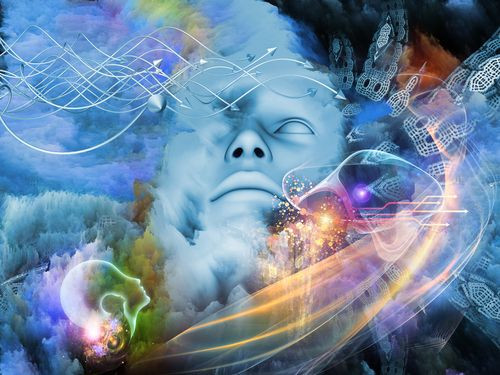Chemo Brain: Sustainable Self-Help Therapies For This (Very) Real Condition

“No concentration.” “My memory’s gone!” “General brain fog.” “Why can’t I think quickly anymore?” Many patients express the same sentiments during (and following) cancer treatment. According to the American Cancer Society, patients point to these symptoms when describing “chemo brain”:
- Memory lapses
- Trouble concentrating
- A short attention span
- Inability to keep track of details, such as names, dates, and sometimes larger events
- Difficulty multi-tasking
- Taking longer to finish things due to slower thinking and processing
- Trouble remembering words
Originally, many doctors were skeptical when patients discussed chemo brain and frequently (if silently) credited psychosomatic response to the ordeal of diagnosis and treatment. Besides, many factors can induce forgetfulness and trouble concentrating. Aging, depression, sleeplessness, anxiety, low blood counts, and many non-cancer-related medications often spur exactly these symptoms. For women, some chemotherapy drugs spur early onset of menopause, which also may trigger mental weaknesses. Over time, though, scientists have grown increasingly receptive to the idea that the drugs involved in chemotherapy may cause damage due to evolving research into the matter.
History of Chemotherapy
In the early 1900s, a German chemist named Paul Ehrlich became interested in mixing chemicals as a way to create medicines for the treatment of disease and eventually coined the term “chemotherapy” to define this practice. His work and that of other scientists of a similar mindset was largely put aside at least temporarily; radiation therapy, which had been developed after the discovery of x-rays in 1895, dominated the field of cancer treatment until 1960. Oddly, it was the two World Wars that influenced this matter.
Specifically, chemical warfare changed the opinion of scientists Louis Goodman and Alfred Gilman who discovered that nitrogen mustard, a gas used as a weapon against Allied troops during the first World War, could shrink cancer tumors. Further observing the effects on the bodies of men exposed to mustard gas, particularly the depletion of bone marrow and lymph nodes, the power of new chemotherapies became clear.
One long-held belief was that chemotherapy did not pass the Blood-Brain-Barrier, a network of blood vessels that generally protects the brain by preventing foreign substances (and chemicals and drugs) in the blood from entering and injuring the brain. Overtime, scientists have acknowledged that this conviction about chemotherapy simply was not true. The Blood Brain Barrier can become permeable or broken down due to various causes, including exposure to radiation, exposure to microwaves, and injuries to the brain causing inflammation. Most importantly, in 2008, scientists at University of Rochester and Harvard linked a widely used chemotherapy drug, 5-fluorouracil, to the death of healthy brain cells, even after treatment has ended.
Chemo brain, then, is real even though it does not affect every patient. At the same time, it is natural to want to remain open to the possibility that any loss of brain function could be caused other aspects of cancer care, including the anesthesia used during surgery or radiation therapy. The overall emotional trauma of a cancer diagnosis takes its toll as well. Ultimately, there is only one question: What do I do?
Sustainable Therapies
A discussion with your doctor (or doctors) would be the natural first step. Some doctors will be quick to prescribe a drug, though officially no drug has been approved to treat the condition. According to the Mayo Clinic, these medications are sometimes used to treat (not cure) symptoms of chemo brain: methylphenidate (Ritalin and others), commonly used to treat attention-deficit/hyperactivity disorder; donepezil (Aricept), commonly used to treat Alzheimer's disease; and modafinil (Provigil), commonly used to treat certain sleep disorders.
Following cancer, many people would prefer to stay away from more drugs and favor sustainable, natural therapies instead. If so, the best advice comes from those who have suffered themselves. Commenting on an article about the condition, “ellen” — who described herself as both a physician and a chemo brain sufferer — made the following suggestions.
- Sleep close to eight hours each night.
- Eat the best, healthiest diet you can manage.
- Get aerobic exercise daily.
- Establish a mental exercise routine and practice daily.
- Incrementally increase difficult tasks, such as writing, reading, and multi-tasking.
- Avoid pushing to the point of stress. When your brain turns off, take a break.
She also suggests dietary supplements (though you should discuss these with a doctor before use): the B vitamins, acetyl l-carnitine, bacopa (used in Indian medicine), ginkgo (used in Chinese Traditional Medicine), and co-enzyme Q-10. Other chemo brain survivors have recommended lecithin.
Ultimately, healing from cancer and its treatment is an individual and active process that might require weeks, months, years… or the rest of your life. For many patients, symptoms of chemo brain appear briefly and disappear instantly. In other cases, the after effects of chemotherapy are farther reaching and longer lasting. (A recent study found the effects lasted as long as five years or more for some cancer survivors.) Patience is important as is a willingness to compensate. After all, losing one mental skill may be an opportunity to enhance or learn another. Chemo brain could be the door to a new way of thinking about life.



























